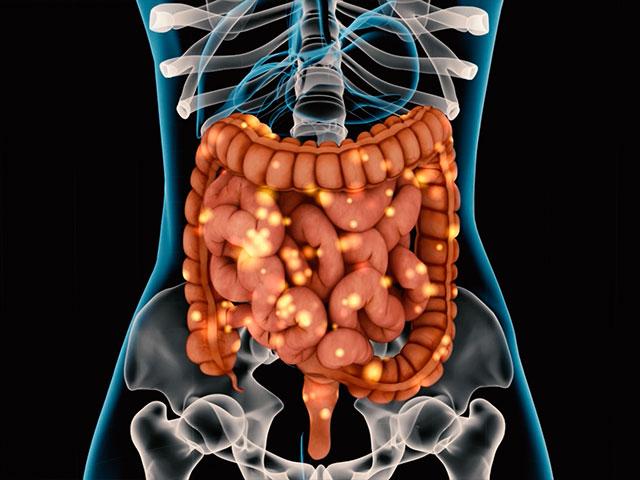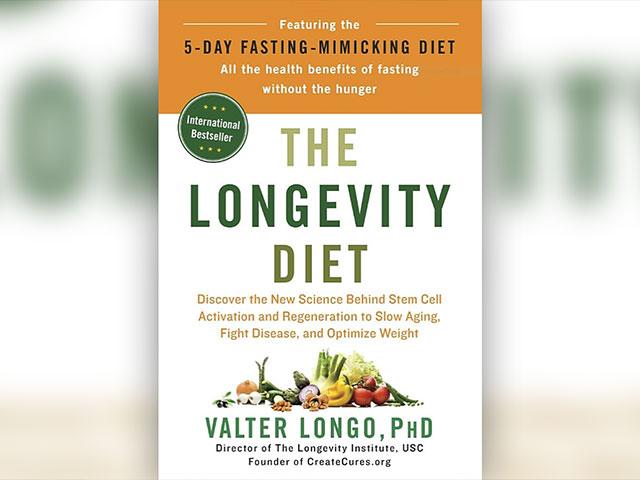Shocking as it may sound, when a person becomes sick and dies, too often doctors find the trouble started in the intestines because of a disruption of the gut bacteria.
Over the last decade, scientists all over the country have been researching the impact of the gut microbiome on all types of diseases. What they've discovered is the good and bad bacteria in our bodies has a much more profound impact than previously thought.
Dr. Jasmohan Bajaj leads a research team at Virginia Commonwealth University in Richmond, Virginia. He says bacteria living in our intestines dramatically influence each aspect of our health, literally from head to toe.
"Their potential is still being unraveled to the point where ten years is too little for us to even scratch the surface of the amount of complexity and the potential both for good and harm in the gut microbes," Dr. Bajaj explained.
A Healthy Gut Can Prevent Liver Disease
Harm such as liver disease, one of the leading causes of death and disability.
"It goes from the spectrum of hepatitis, obesity-induced liver disease, alcohol, all the way to end-stage with cancer as well as cirrhosis," he said.
Dr. Bajaj says too much bad bacteria cause inflammation, and an inflamed liver doesn't do its job very well.
"The gut gets more inflamed and this, unfortunately, leads to the cycle where patients find themselves into liver disease without knowing it," Bajaj added.
And it's the only problem that can sneak up on someone.
"There have been a number of diseases that have been linked to aberrations in the gut microbiome," said Dr. Gerard Mullin, Johns Hopkins Gastroenterologist and author of The Gut Balance Revolution.
Inflammation Leads to a Host of Deadly Diseases
Mullin says folks need to know that intestinal problems can lead to cancer and other life-threatening issues.
"There's inflammation that occurs when we have an unhealthy balance of gut bacteria," Dr. Mullin explained. "What's most alarming is that there are people out there who have rheumatoid arthritis, some kind of autoimmune disease, cardiovascular disease, that may have a gut condition that is silent and is the cause. These are all diseases that have chronic, uncontrolled inflammation as a root cause."
He says while we may seem okay when we're younger, it eventually catches up to us.
"When we reach our fifties, sixties, on up, then all of the sudden it becomes more sensitive to the environment and less stable. So, in particular, the elderly are more susceptible to variations in the environment that may disturb the microbiome," he said.
How Gut Health Affects Emotions and Mood
Cleveland Clinic's Dr. Gail Cresci says the gut also profoundly affects thoughts and feelings.
"There are a number of conditions to the brain that are relatable to the gut microbiome. And that spectrum goes from Attention Deficit Disorder to Parkinson's, Multiple Sclerosis, Alzheimer's, what they call neurodegenerative diseases, behavioral diseases, mood disorders – a full spectrum of disorders that have been linked to the gut microbe."
All that thanks to a well-traveled pathway between the mind and this crucial part of the body.
"Gut bacteria secrete different byproducts and some of the things they secrete are neurotransmitters that leave the intestinal tract and signal to the brain and these are things like serotonin and dopamine. And we know those get into the bloodstream and get into the brain and help affect mood. So a lot of anxiety disorders, depression are associated with alterations in the gut microbiota," Cresci said.
The Mayo Clinic's Dr. Heidi Nelson says our intestinal tract serves as the largest component of our immune system.
How Immune Response is Linked to the Gut
"The interaction between the bugs and the immune cells that help us immunologically to be able to respond to bad infections are in part developed by what goes on in the gut," Nelson said.
In the Mayo Clinic's anaerobic chamber, scientists grow and study bacteria that die when exposed to oxygen. Believe it or not, we have a lot of anaerobic bacteria in our bodies, because much of intestines are oxygen free.
Researchers here say the right kind of bacteria means the lining of our intestines contains tiny, helpful holes that allow microscopic nutrients into our bodies. Too much bad bacteria, however, causes those holes to grow.
"It allows more things to pass through it, things that are not desirable," said Dr. Purna Kashyap, a microbiome researcher at the Mayo Clinic. "And yes, there's a lot of diseases like Celiac Disease or Inflammatory Bowel Disease where the gut lining is not as robust, which means in addition to just the nutrients that should be going in, you can have more harmful compounds from the bacteria which can leak in and they can make you sick."
This so-called "leaky gut" can cause the immune system to attack those larger particles that escape into the body.
When it comes to our health, experts now say the bacteria in our gut run the show, for better or worse.
Discover the amazing role your gut health has in regulating your overall health and wellness by clicking on this link to get your free booklet, Build a Better Gut.
*Originally published July 31, 2018.
Did you know?
God is everywhere—even in the news. That’s why we view every news story through the lens of faith. We are committed to delivering quality independent Christian journalism you can trust. But it takes a lot of hard work, time, and money to do what we do. Help us continue to be a voice for truth in the media by supporting CBN News for as little as $1.












 Support CBN News
Support CBN News










